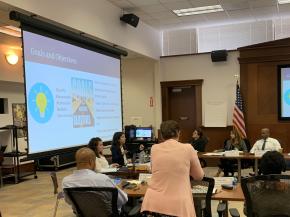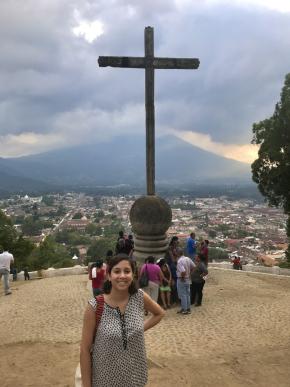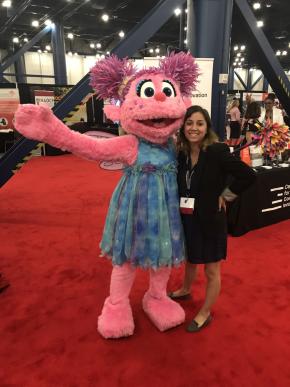
Alejandra Garcia works to build strong communities, fulfilling a lifelong goal of transforming the criminal justice system. As a senior program manager with the Center for Court Innovation’s treatment courts team, Alejandra partners with local and national justice system practitioners to improve their drug treatment courts, develop statewide plans to address substance use, and implement opioid courts. “I feel called to advocate for the dignity and health of individuals, families, and communities.”

Alejandra joined the Center seven years ago as a social work intern. Growing up in San Francisco, with parents who worked in social service and behavioral health, she understood the importance of meeting community needs. “I was drawn to work at the Center because of a desire to end mass incarceration and a calling to be of service. Mass incarceration has caused untold destruction to individuals, families, and communities. I want to be a part of ending that system.” She believes that, “each of us has the opportunity to create change,” explaining that while she is not doing direct service work at the moment, “I play a role in shaping programs and policies.”
In her work she aims to consider the most marginalized perspective, “the folks often left out of the conversation,” she says. “My work requires patience, understanding, and flexibility, but also integrity and a willingness to speak up for those who may not be present in decision-making. Who’s left out and how do we bring them to the table to meet their needs? What’s not being said because we’re afraid of change and comfortable with the status quo? I keep these questions in my mind so that I stay dedicated to the cause of supporting individuals and communities that are affected by the system.”

Alejandra’s position allows her to travel and “meet people across the country I would otherwise never meet.” She says she enjoys that this keeps the work dynamic and always changing. “No day is ever the same.
Along with her colleague and fellow Changemaker, Dave Lucas, Alejandra co-wrote “Bridging the Gap” a paper that considers how we can better support individuals and communities through a racial equity and harm reduction-informed lens. “I’d like to see our team implement the harm reduction informed recommendations in ‘Bridging the Gap.’ It marks a departure from abstinence-only care and recognizes the importance of providing our treatment court participants with social support and stability in their communities through housing assistance, employment, and mental health care in addition to clinical treatment.”

Transforming justice together means playing our individual part to build strong communities. It means creating and supporting thriving, sustainable communities through redistribution of resources from carceral systems of punishment, to meeting needs like housing and healthcare so folks can live meaningful dignified lives, together.
Outside of work, Alejandra has a love of cooking, learning new recipes, and hosting dinner parties for her loved ones. She enjoys challenging herself to try new techniques and ingredients when cooking new recipes with or for her friends. She tells us, “Feeding people has been a way that I can show my appreciation and care towards my friends and family.”

